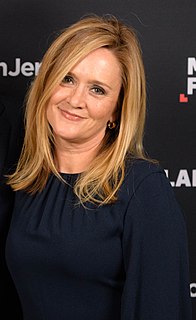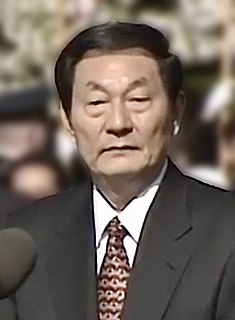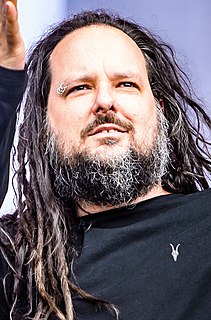A Quote by Allen W. Wood
Since we cannot know too much about the long term effects of our particular lives, and since success and fame are not good measures of the value of what we have done, it should be enough for any of us that as far as we can tell, in some small way we have made humanity's future better rather than worse.
Related Quotes
I've talked to a lot of other women in the field of comedy and none of us feel like being a woman has been a barrier to success in our lives. I can't claim to feel like I've been under some man's thumb in comedy. I've sort of always done my own thing for better or worse, and have been lucky enough to be able to perform ever since. So I'm not surprised by all the articles, but I don't know if it's necessarily true. It's not like we haven't been around.
Our incomes should be like our shoes, if too small, they will gall and pinch us, but if too large, they will cause us to stumble and to trip. Wealth, after all, is a relative thing, since he that has little and wants less is richer than he that has much but wants more. True contentment depends not upon what we have; a tub was large enough for Diogenes, but a world was too little for Alexander.
It is tempting to call for better leadership, but we probably expect too much from the leaders of the nations. Those nations are too big, the connections not strong enough, the commitment to the future not long enough. It is better to look smaller, to our now-smaller organisations, to local communities and cities, to families and clusters of friends, to small networks of portfolio people with time to give to something bigger than themselves. We have to fashion our own directions in our own places.
We should feel an urgency about our environment and what's been done to it by human action and inaction. I wouldn't say there's a resurgence - I think it's been with us all along, and especially since the 1960s and 1970s, but it is true that there's almost a subsection of the bookstore devoted to it now. Personally, I've been addressing these issues in my long and short fiction since the late 1980s - basically since the beginning of my career.
Not by lamentations and mournful chants ought we to celebrate the funeral of a good man, but by hymns; for, ion ceasing to be numbered with mortals, he enters upon the heritage of a diviner life. Since he is gone where he feels no pain, let us not indulge in too much grief. The soul is incapable of death. And he, like a bird not long enough in his cage to become attached to it, is free to fly away to a purer air. . . . Since we cherish a trust like this, let our outward actions be in accord with it, and let us keep our hearts pure and our minds calm.
Every effort therefore must be made to perpetuate prosperity. And, since that is to the advantage of the rich as well as the poor, all that accrues from the revenues should be collected into a single fund and distributed in block grants to those in need, if possible in lump sums large enough for the acquisition of a small piece of land, but if not, enough to start a business, or work in agriculture. And if that cannot be done for all, the distribution might be by tribes or some other division each in turn.
We know that global capitalism, and the commercially driven culture that comes with it, can be a powerful solvent, but many of us who benefit from it economically can regret the effect it has on our own lives as well as on the lives of others, and we should not view ourselves as helpless in the face of an irresistible force, especially since we may very well be complicit. We should be prepared to help others or to leave them be to sustain their cultures if we judge that they are of intrinsic value or of value to their members.
But I'd rather help than watch. I'd rather have a heart than a mind. I'd rather expose too much than too little. I'd rather say hello to strangers than be afraid of them. I would rather know all this about myself than have more money than I need. I'd rather have something to love than a way to impress you.
Nothing highlights better the continuing gap between rhetoric and substance in British financial services than the failure of providers here to emulate Jack Bogle's index fund success in the United States. Every professional in the City knows that index funds should be core building blocks in any long-term investor's portfolio. Since 1976, the Vanguard index funds has produced a compound annual return of 12 percent, better than three-quarters of its peer group.



































